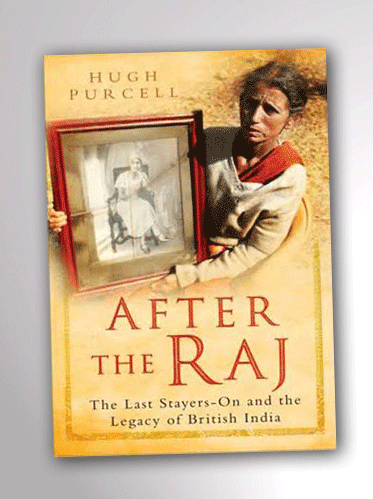After the Raj
In 2007 I interviewed ten of the very last Brits who had been born in India and never left at Independence in 1947. Since my interviews many have died. Big game hunter turned wildlife conservator, taxidermist, boxwallah (businessman), and clubman, missionary, tea planter, antique dealer, language expert, preserver of cemeteries, broadcaster, their carefully contextualized stories illuminate the legacy of the Raj.The book was published by The History Press in 2008 and 2011 and in India by Supernova in 2010.
'Purcell is too acute to make After the Raj an exercise in gentle mockery, as some might have done. His interviewees provide a platform for observations on the present and recent past. Lively and informative, this is not just a book for the old koi-hais (stayers-on), but relevant to Britain’s ongoing and rapidly changing relationship with India.' Rosie Llewellyn-Jones, History Today
'Who are the survivors of the Raj and why did so many stay on in India? This is a very broad canvas over which to splash the colours and changing landscape of expatriate Britons who came and went in droves. Hugh Purcell's research is excellent, the work has the stamp of authority. For the readers of "Koi Hai" , aptly named by Purcell a "club for nostalgic tea planters", there is a chapter describing the present home of Bob the Planter in Shillong. Through Bob, the author expertly traces the history of tea and the ingredients that made the life of a tea planter such a special romance. Another chapter deals with the so-called Calcutta "box wallahs" and the rise and fall of Agency Houses. This book will be well received not only by previous Raj dwellers but also by many present day citizens of Britain and India who somehow still regard the British tenure of India with compulsive interest and curious affection.' Derek Parry, Koi-Hai.
'I have devoured the whole book and am drawing it to everyone's attention.' Robert Sykes
